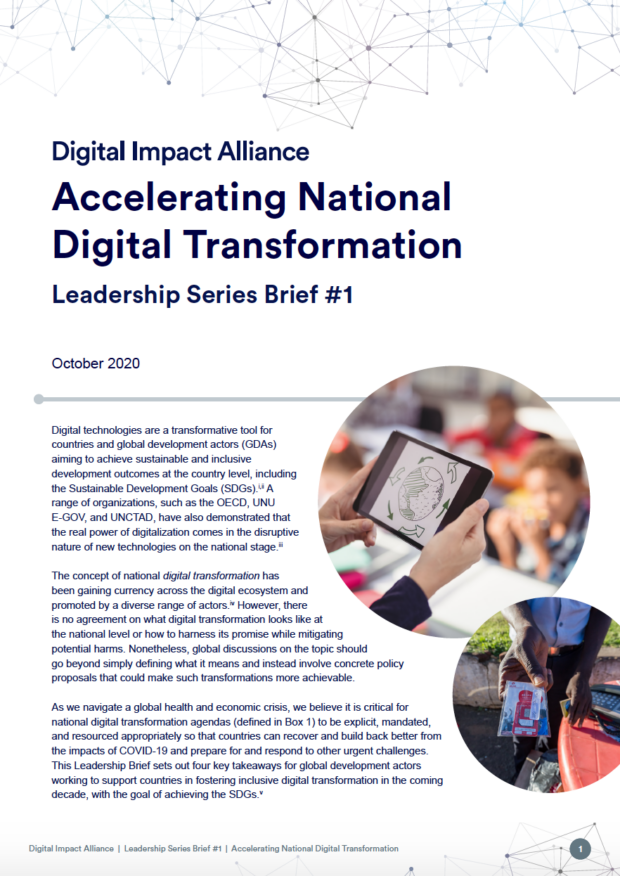For the fourth in our series of Leadership Briefs, we focus on the opportunity to leverage data for more effective and transparent public services. DIAL’s work to promote “good” digital transformation focuses on building digital transformation ecosystems and governing the resultant data to maximize the opportunities for participation, individual agency, choice, and trust.
The following brief focuses on how to approach data governance to successfully advance these goals, highlighting specific insights and actionable guidelines that have emerged from DIAL’s past work. These recommendations are supported by a review of the recent data governance literature and seek to illuminate emerging practices, policy options, and important lessons relevant to policymakers and those who advise them.
Key Takeaways:
- Data holds the potential to accelerate national digital transformation, but common challenges to sharing data constrain that potential. Digital transformation or the adoption of online operating models and the general shift of socioeconomic activities to online platforms are reshaping the functioning of governments, businesses, and societies.
- Inclusive policymaking mechanisms for data governance enhance public trust and support digital transformation but face significant constraints regarding effective implementation. The complexities of governing data are compounded by the pace of change in the digital economy – not only in the rapid introduction of new technologies but also in evolving business models and consumer expectations with regard to their rights and capabilities in a digital society.
- Strengthening the mechanisms for measuring and monitoring how data is governed remains a significant challenge for all countries. Data governance requires constant and deliberate attention throughout the entire data life cycle to ensure that data is underpinning “good” digital transformation. However, too few metrics exist to understand and monitor the impact of data governance decisions across the data life cycle.



